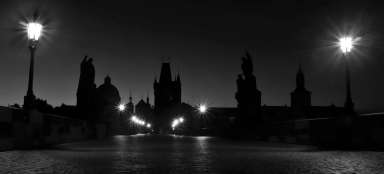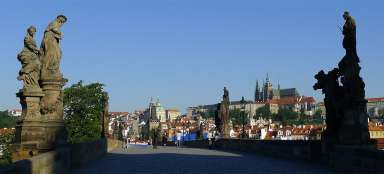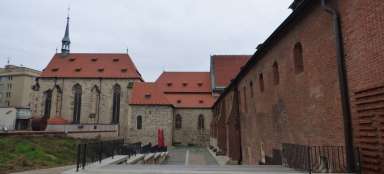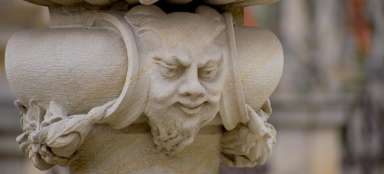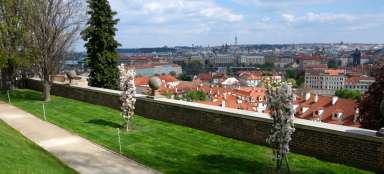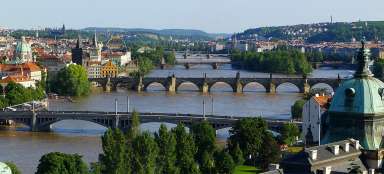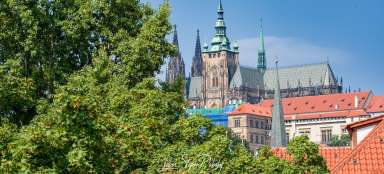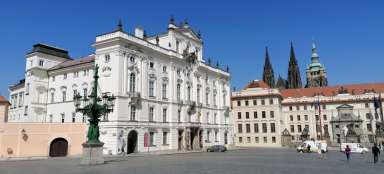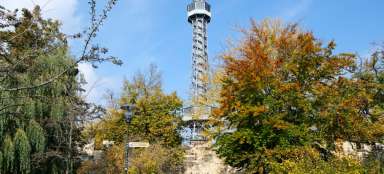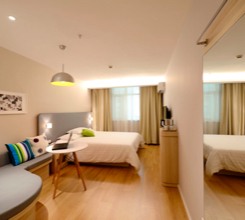The symbol of the Hussite movement
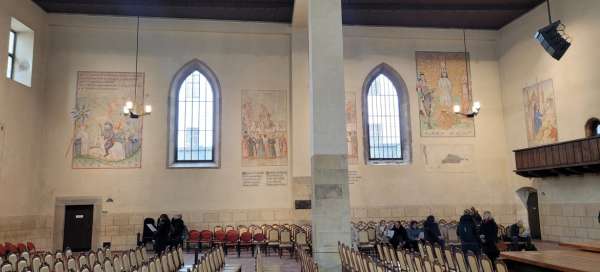
Bethlehem Chapel is a Gothic chapel on Bethlehem Square in Prague. It was built in the years 1391–1394 and was intended for preaching in the Czech language. Master Jan Hus and other Hussite priests preached here. The chapel was an important center of the Hussite movement and Hus's reform activities. Hus was finally burned at the stake in 1415, but his sermons in the Bethlehem Chapel continued after his death. The chapel was the center of Hussite rebellions and was repeatedly burned and repaired. Today, the Bethlehem Chapel is an important historical monument and one of the most important places in Czech history.
Foundation of the chapel
The chapel was founded by a courtier of King Wenceslas IV. Hanuš from Mühlheim and the rich merchant Jan Kříž, who donated the land. The chapel was built in the Gothic style and had the form of a single-nave hall with an irregular quadrangle layout with Gothic vaults and stained glass windows.
The building was deliberately very simple to contrast with the decoration of Catholic churches. It was an unusually large building for the Middle Ages, it could accommodate up to 3,000 people.
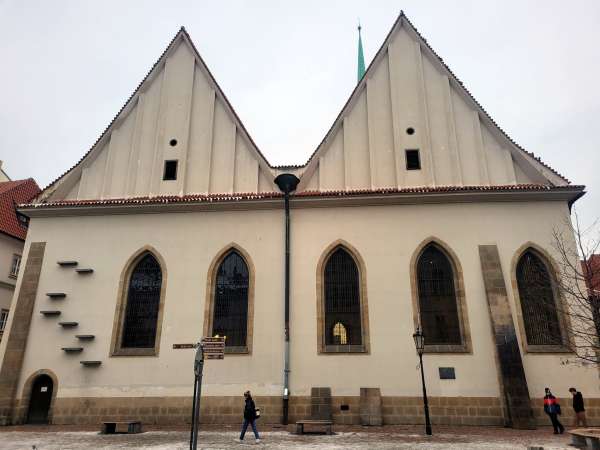
Master Jan Hus
Hus began to preach in the Bethlehem Chapel in 1402. His sermons were very popular and attracted crowds of people from all over Prague and the surrounding area. Hus preached in the chapel about the need for church reform and the importance of reading the Bible in the mother tongue. Hus preached his famous sermons here, including sermons on the seven deadly sins, the church and the authority of the Pope. His sermons attracted large crowds, including townspeople, students, and the lower classes. Hus worked here until 1412, when he had to leave Prague.
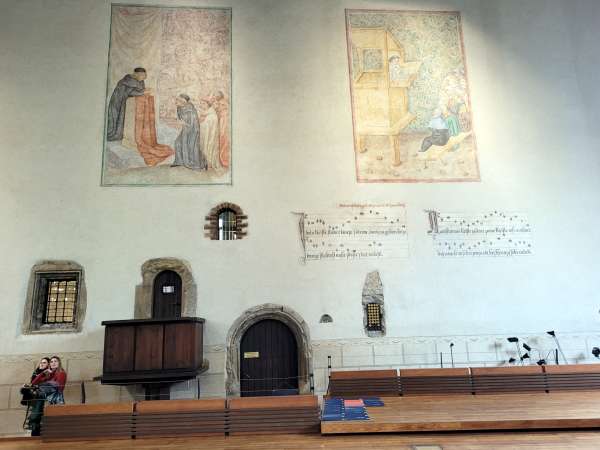
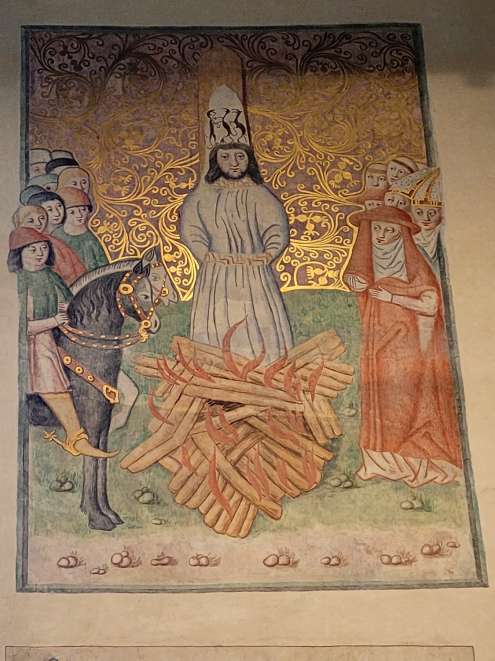
The burning of Jan Hus
In 1415, Hus was burned at the stake in Constance. After his death, the Bethlehem Chapel became a symbol of the Hussite movement, and until 1622, communion was practiced here. Then the chapel was handed over to the Jesuits, after the abolition of the order it gradually began to decay and became empty and was finally demolished. Jan Hus is commemorated through the painting „Master Jan Hus at the stake“
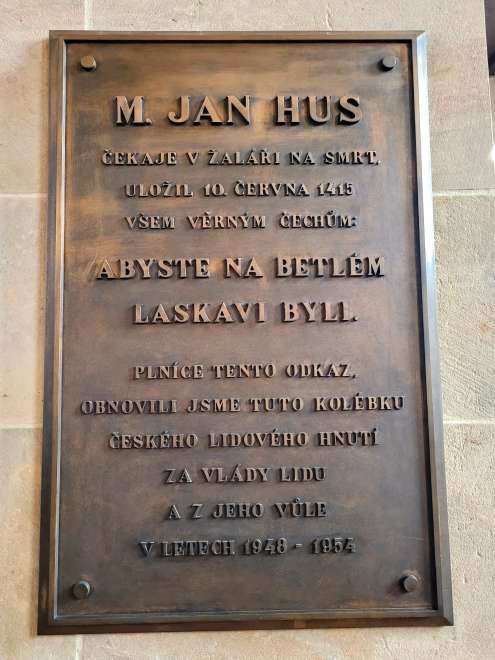
Restoration of the chapel
In 1949, the government decided to restore the chapel. The total restoration and reconstruction of the chapel and the preacher's house was completed in 1954. The chapel was ceremonially opened on the eve of the anniversary of Hus's death on 5 July. 1954.
The restored chapel is not completely identical to the original chapel, for example, there used to be six windows in the south wall, now there are only five. but has the same floor plan.
Bethlehem Chapel today
The last reconstruction took place between 1982 and 1992.
The chapel is a ceremonial and representative place of the Czech Technical University and graduations are held here, among other things. Concerts, theater performances and other cultural events are also held here.
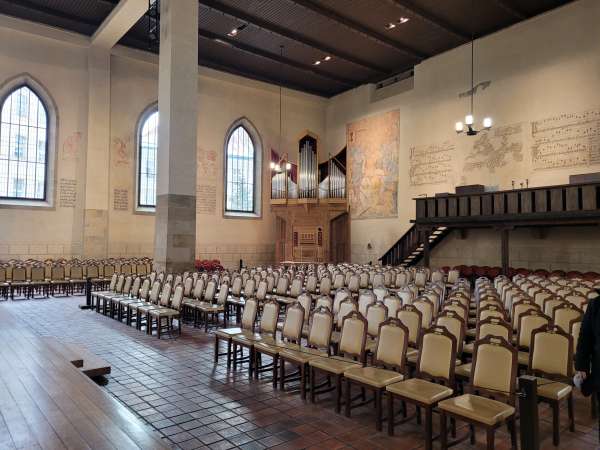
South wall
Façade with five windows Paintings of crafts, texts about the six delusions drawing of the title page of Hus's writings
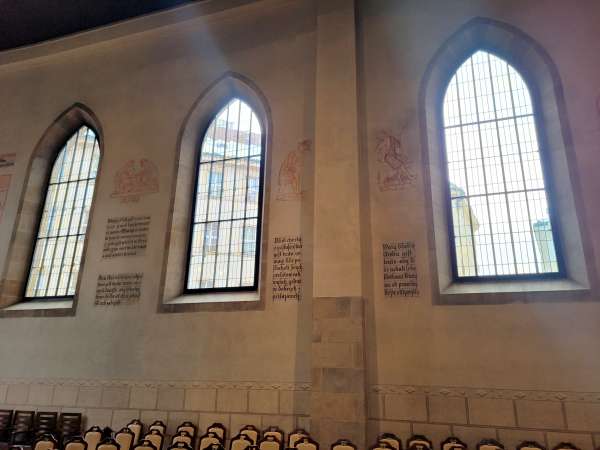
North wall
The right part of the original building has survived, including the original window and a fragment of the Jan Hus inscription. A picture of Master Jan Hus on the pyre was placed above this inscription. A picture of Emperor Sigismund, Jan Žižka and the Pope.
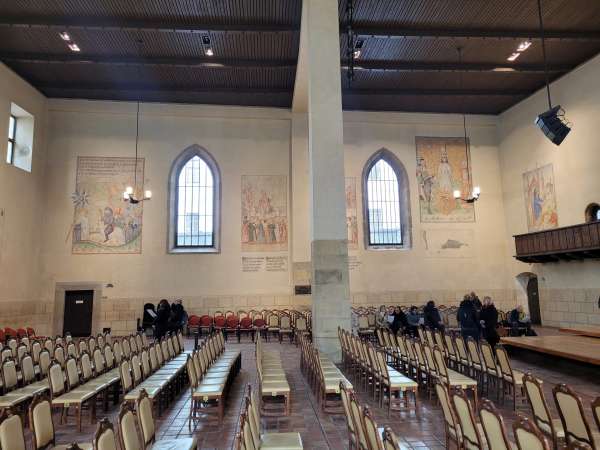
East wall
The sanctuary, the portal with the entrance door, the entrance to the preacher's house, the entrance to the pulpit from where Master Jan Hus preached in 1402–1412 and Tomáš Münzer in 1521. the entrance to the Cross Oratory, all from Hus's time.
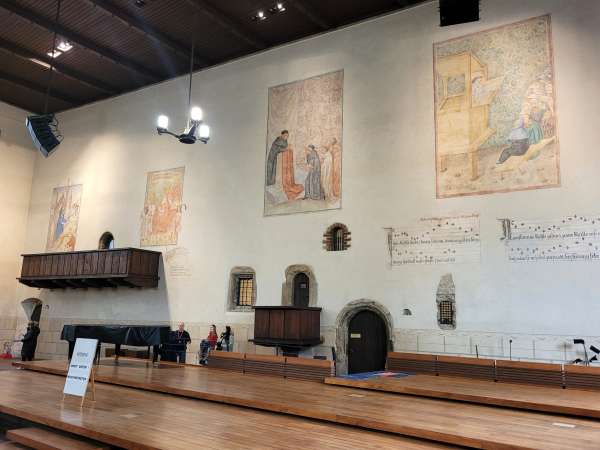
West wall
Two smaller windows and one large arched window. Scene of the battle of the army under the chalice banners with the crusaders in 1432 near Domažlice, songs from the Jistebnické chantry, a fragment of the original text from 1417 by Jakoubek of Stříbr about communion under both.
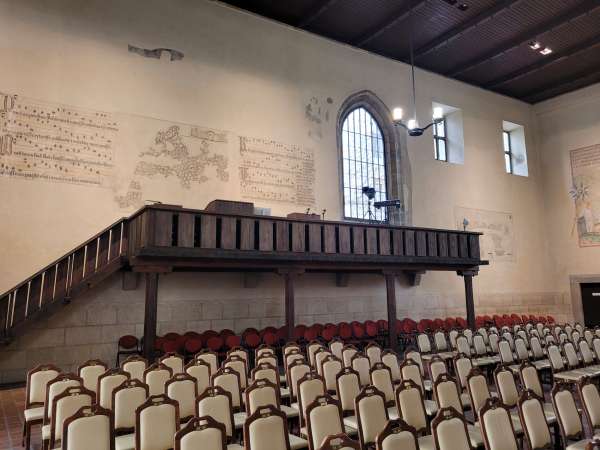
A memorial
The plaque commemorates the execution of three young men on the Old Town Square.
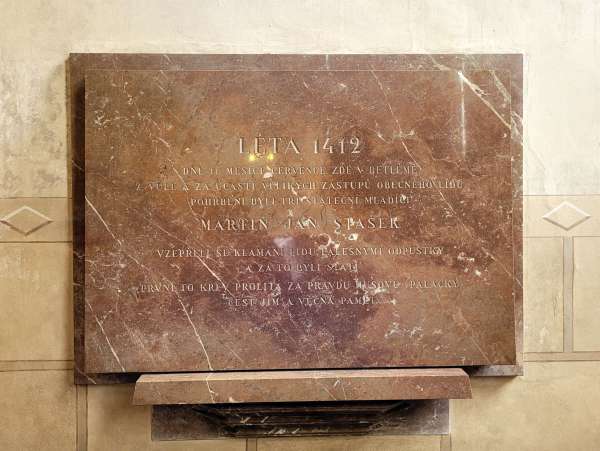
Well
A 10-meter deep well has been integrated into the interior, which has been there since the chapel was founded.
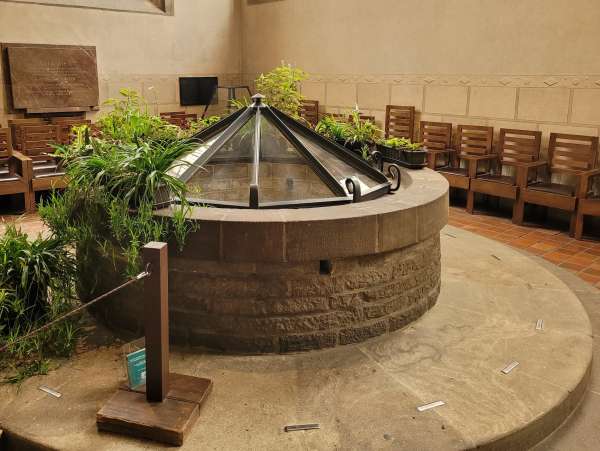
Preacher's house
Adjacent to the chapel is the preacher's Gothic house, originally a malting house, where a refectory was set up during the construction of the chapel. There is information on the ground floor and the ticket office upstairs is an exhibition about the chapel and Hus's life.
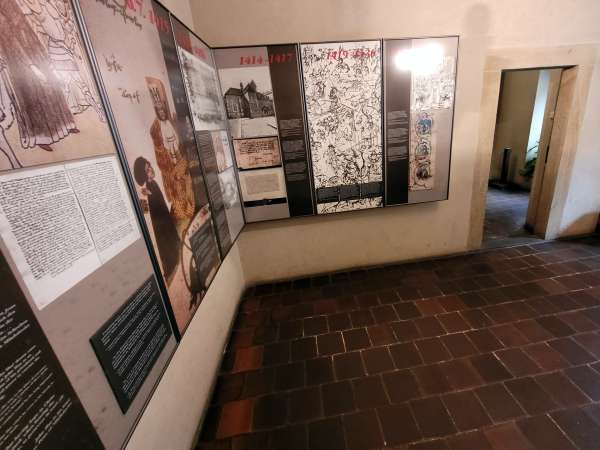
Hus' room
In the right part of the house is Hus's room with a memorial plaque and a statue.
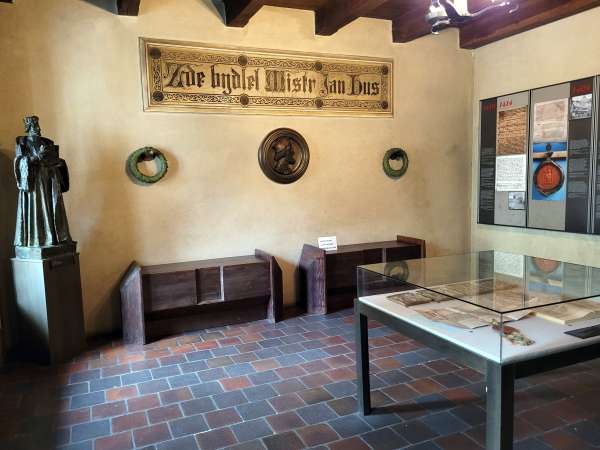
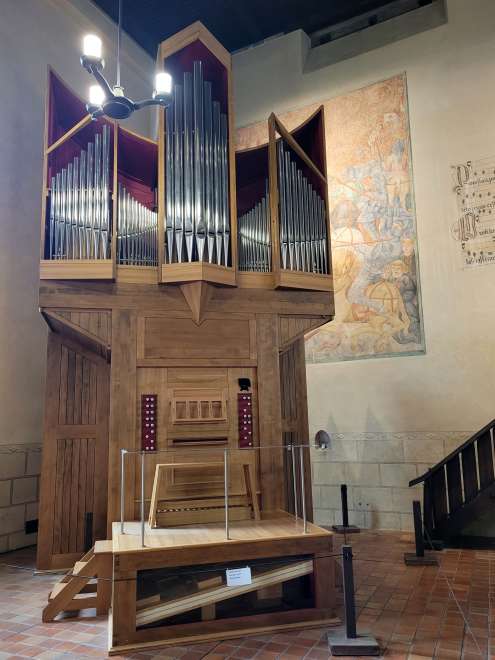
Organ
A classical organ with a spruce wood case has 26 registers.
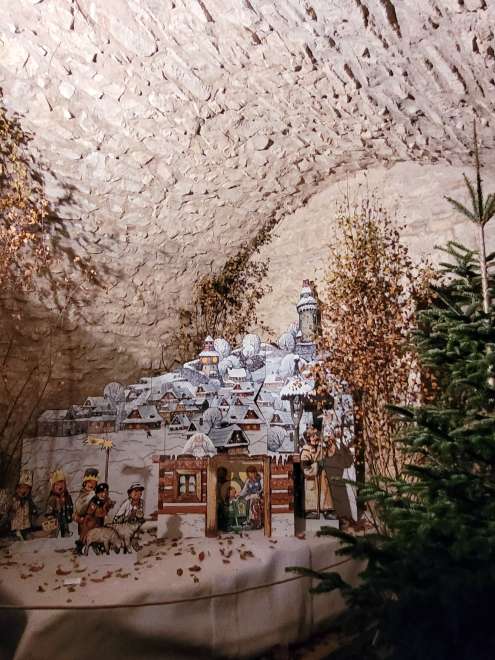
Cellar
Under the entire area of the chapel is a cellar where burials were originally made. Today, the space is accessible to the public only during exhibitions.






